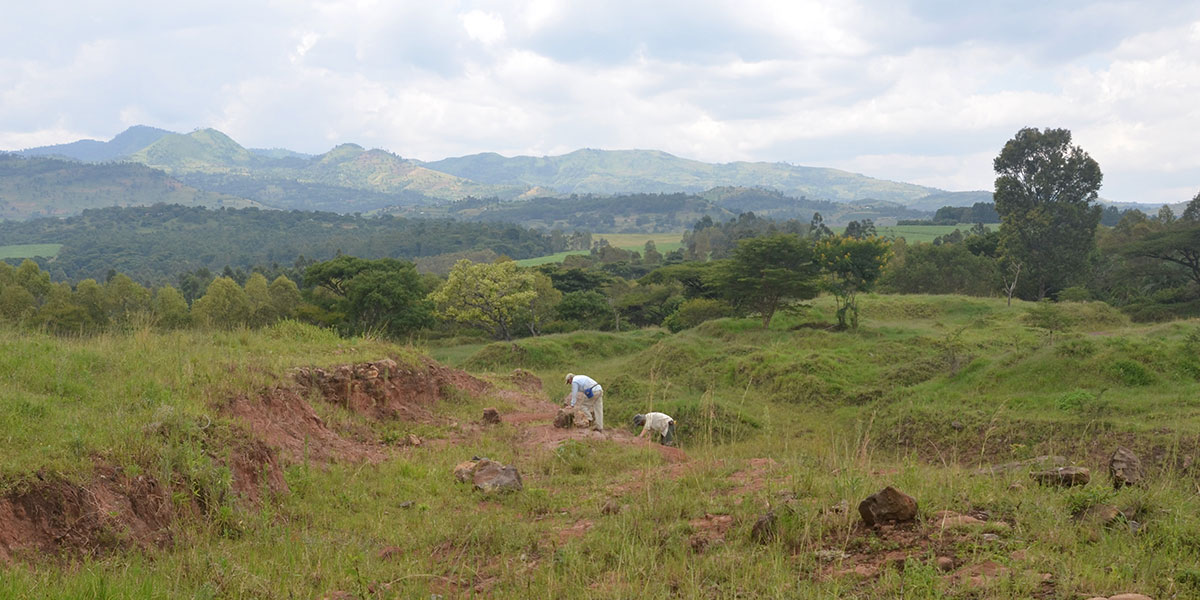Baylor research leads to a 10-million-year history adjustment

It all comes down to a lot of digging, a decade’s worth of research, and the definitive presence of warm-weather grasses.
Here’s the background: Understandably, our understanding of what a particular area was like at a given time — forest vs. grassy plains, for example — shapes our understanding of how animals in that area developed over that time. The habitats in which animals live shape their habits and the ways they adapt to meet the demands of their environment.
Scientists have long thought that Africa in the early Miocene epoch was covered by forest — a closed habitat. They believed open habitats (like Texas, with open spaces and fewer trees) didn’t proliferate in that area until about 10 million years ago, and that affected palaeoecological interpretations of the development of plants and mammals in that time and place.
But…
Dr. Daniel Peppe, a geosciences professor at Baylor since 2009, and his international team of researchers took a different approach toward what Africa’s habitat might have been during the Miocene epoch. The team — funded by the National Science Foundation (NSF), and including more than 20 Baylor faculty members and students over more than 10 years — made a first-of-its-kind effort to combine multiple lines of evidence at multiple sites.
The team’s findings, published twice in the highly-selective journal Science, led to a timeline-shattering conclusion: Warm-seasoned grasses were widespread in Africa as far back as 21 million years ago — more than 10 million years earlier than previously thought. That means ape habits and adaptations, thought to have only been possible 10 million years ago, were now possible more than 10 million years earlier — a dramatic change in the field’s thinking that will have reverberations in academic studies for years to come.
Both future and past studies will now be viewed and reviewed through this new lens — thanks to the detective work of Peppe and his team.
Sic ’em, Dr. Peppe!
[Hear more about the discovery from Peppe in a recent episode of Baylor Connections.]

